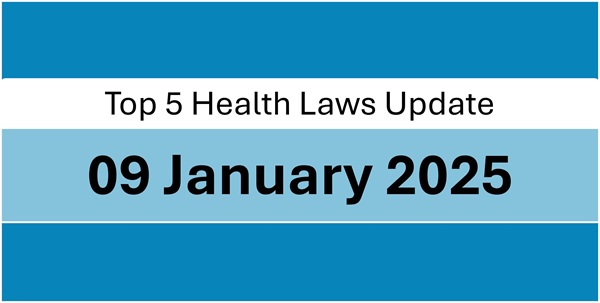Dear Readers, we are happy to share the most interesting legal and policy updates concerning health industry that we read today. we hope you enjoy reading it.
1. The Supreme Court of India has ruled that company directors and officials are not vicariously liable for corporate offences without specific statutory provisions and evidence of personal involvement. While companies may be held accountable for employee’s misconduct, directors’ liability requires proof of their direct actions. Mere association with the company is insufficient to attract a liability.
Source: bit.ly/3PvHNJK
2. The Supreme Court of India, while hearing a PIL against multinational pharmaceutical companies, raised ethical concerns over clinical trials in poorer countries. It highlighted the exploitation of vulnerable populations and the lack of oversight in such practices thereby urging stricter regulations to protect participants’ rights. The Drugs and Clinical Trial Rules, 2019, notified under the Drugs and Cosmetics Act, 1940, mandate provisions like Ethics Committees and compensation for trial-related injuries or deaths.
Source: bit.ly/3DNYBt4
3. The Jammu & Kashmir and Ladakh High Court has initiated contempt proceedings against a prominent Indian law firm for allegedly misquoting a 2010 judgment related to the Sawalkote Hydro-Electric Project. The court observed that the law firm had misrepresented judicial findings in a legal notice that was issued by the court which might potentially amount to criminal contempt.
Source: bit.ly/423xnZz
4. The Bombay High Court emphasized that intelligence levels should not determine parental rights while deciding a case involving a woman’s right to motherhood with borderline intellectual disability. The court reviewed a petition seeking termination of the woman’s 21-week pregnancy, with a medical report confirming her fitness for pregnancy.
Source: bit.ly/3Cb5Evd
5. India’s healthcare stakeholders, ahead of Budget 2025, are urging reduced customs duties (~37%) on advanced cancer therapies, drugs, and treatment equipment. They seek tax reforms, including GST rationalization, increased healthcare spending to 2.5-3% of GDP, long-term financing options, telemedicine expansion, and infrastructure incentives. Emphasis is also laid on digital health and preventive care to ensure equitable access nationwide
Source: bit.ly/4gJousH

